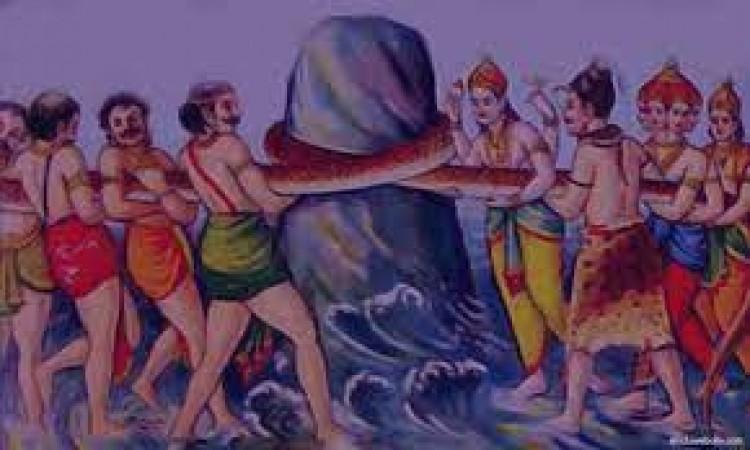
Hinduism, one of the world's oldest religions, is a tapestry of diverse beliefs, rituals, and deities. Among its vast pantheon of gods and goddesses, there are several secretive and mystical deities that hold immense significance in the lives of devotees. These enigmatic gods have captured the imagination of believers for centuries, offering profound insights into the human experience and the mysteries of the universe. In this article, we delve into the fascinating world of these hidden gods in Hinduism and explore their symbolic meanings, spiritual importance, and relevance in contemporary society.
1. The Concept of Secretive and Mystical Gods
In Hinduism, secretive and mystical gods represent esoteric aspects of divinity that transcend human understanding. These gods are often shrouded in symbolism and myth, making their true nature elusive to the casual observer. They embody the mysteries of life, death, and the cosmos, and their worship requires a deep spiritual connection and a profound sense of devotion.
2. Lord Shiva: The Ascetic Deity
One of the most revered secretive gods in Hinduism is Lord Shiva, the Supreme Destroyer and Transformer. He is depicted as an ascetic immersed in meditation, adorned with a snake around his neck and a crescent moon on his matted locks. Lord Shiva symbolizes the cyclical nature of existence, where destruction paves the way for creation. His secretive nature challenges seekers to look beyond the material world and seek spiritual enlightenment.
3. Goddess Kali: The Dark Mother
Goddess Kali is a fierce and secretive deity associated with destruction and renewal. With her wild mane and a garland of skulls around her neck, she embodies the raw power of femininity. Kali's worshipers find solace in her ferocity, as she destroys ignorance and liberates souls from the cycle of birth and death. Her mysterious aura reminds us of the impermanence of life and the need to embrace change fearlessly.
4. Lord Vishnu: The Preserver
Lord Vishnu, the Preserver, is another enigmatic god in Hinduism. He incarnates on earth to restore cosmic order whenever evil threatens to disrupt it. Lord Vishnu's secretive nature lies in his ability to maintain a harmonious balance between good and evil, ensuring the preservation of dharma (righteousness). His various avatars, such as Rama and Krishna, exemplify the multifaceted aspects of divinity.
5. Goddess Saraswati: The Source of Knowledge
Goddess Saraswati, the embodiment of wisdom and learning, is often depicted playing a veena and surrounded by books. She is the patron deity of scholars, artists, and students seeking knowledge. Saraswati's secrecy lies in the depths of her wisdom, which can only be attained through a sincere quest for learning and self-discovery.
6. Lord Hanuman: The Devotee
Lord Hanuman, the loyal and devoted companion of Lord Rama, embodies unwavering devotion and selfless service. His secretive nature lies in his humility and strength, which transcend his simian form. Hanuman's tale inspires devotees to overcome obstacles through faith and unwavering dedication to their chosen path.
7. The Mystique of the Trinity: Brahma, Vishnu, and Shiva
The Hindu Trinity—Brahma (the Creator), Vishnu (the Preserver), and Shiva (the Destroyer)—are the foundational forces of the universe. While their roles are well-defined, their secretive aspects lie in their interconnectedness and oneness. They represent the cyclical flow of time and the eternal dance of creation, preservation, and dissolution.
8. The Esoteric Teachings of Tantra
Within Hinduism, Tantra is a path of spiritual practice that embraces the mysteries of existence. It involves rituals, meditation, and worship of secretive deities to attain spiritual enlightenment. Tantric practices emphasize harnessing the divine energy within oneself to achieve self-realization and union with the ultimate reality.
9. The Relevance of Secretive Gods in Modern Times
In contemporary society, the secretive and mystical gods of Hinduism continue to hold relevance. As individuals face the complexities of life, these enigmatic deities offer solace, strength, and guidance. Their timeless wisdom encourages believers to look beyond the mundane and embrace the deeper truths of existence.
10. Embracing the Divine Mysteries
In a world driven by logic and reason, the secretive gods of Hinduism remind us of the profound mysteries that surround us. Embracing these mysteries can lead to a deeper connection with the divine and a greater appreciation for the complexities of life. The secretive and mystical gods of Hinduism provide a profound spiritual framework for seekers on their journey of self-discovery and enlightenment. From Lord Shiva's asceticism to Goddess Kali's ferocity and Lord Vishnu's preservation, each deity offers unique insights into the multifaceted nature of the cosmos. Embracing the mysteries of these enigmatic gods can enrich our lives and deepen our understanding of the interconnectedness of all existence.
Divine Revelry: Unveiling the Vibrant Hindu Festivals
Navratri: Embracing the Power of Goddess Durga in Nine Glorious Nights
Codependency and Setting Boundaries: Promoting Individual Growth in Relationships